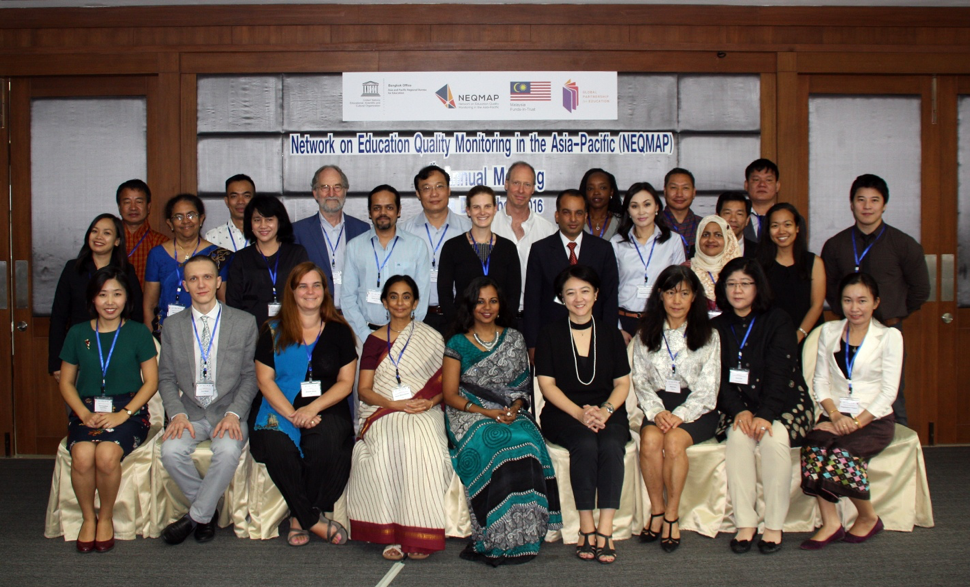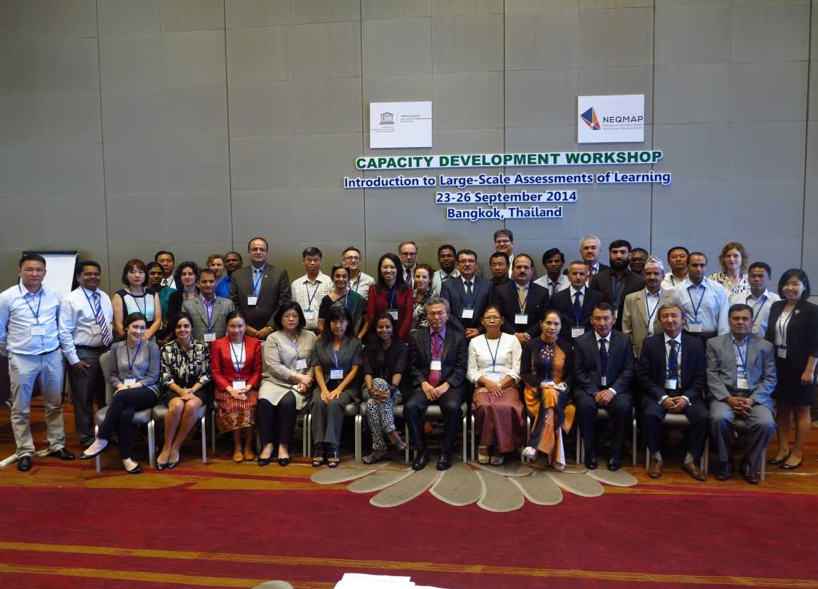Education Evaluation Center has been developing cooperation with international organizations and counterparts of foreign countries since the establishment. We aim to bring educational quality and assessment in Mongolia into international level. In order to fulfiil this goal we learn practices and experiences from different countries and pay a lot of attention to increase capacity development of our specialists.
Education Evaluation Center is one of the founding member organizations of the Network on Education Quality Monitoring in the Asia-Pacific (NEQMAP) in 2013. NEQMAP was established in March 2013 in Bangkok, Thailand, is a platform for exchange of knowledge, experience and expertise on the monitoring of educational quality in countries and jurisdictions of the Asia-Pacific region. In the framework of the NEQMAP activities EEC has been participating in the Asia- Pacific region education collaboration in the following areas:
Annual meetings and Capacity Development training and workshops
Delegates from EEC have attended annual meetings and 80 % of specialists participated in the capacity development trainings and workshops in the following area.
Data Quality and Accuracy for Large-Scale Learning Assessment Programmes
Reporting & Dissemination of Large-Scale Learning Assessments
PISA for Development (PISA – D)
Analyzing and Understanding Learning Assessment for Evidence-Based Policy Making
Alignment between Curriculum, Teaching and Assessment
Design and Development of Large-Scale Learning Assessment
Introduction to Large-Scale of Learning Assessment etc.


Projects
EEC has participated in many international projects through the NEQMAP activities in collaboration with countries in the Asia-Pacific region.
Optimizing Assessment for All- assessing the 21st century skills in classroom level
Brookings, in partnership with the Global Partnership for Education, and the Network on Education Quality Monitoring in the Asia-Pacific at UNESCO Bangkok has collaborated with three countries in the Asia-Pacific, Mongolia, Bhutan and Nepal have worked intensively over two years to design, administer, and use the results of classroom-based assessments of 21st century skills, or transversal competencies between March 2018 through December 2019. Education Evaluation Center has been chosen as the implementing organization of Mongolia in the OAA project. The project has been implemented successfully over 2 years of period involving 4 secondary schools in Mongolia. For Mongolia, Grade 5 was selected as it is the last year of primary education.
Survey and Programmes
UNESCO Bangkok has launched the Learning Enablers for Asia and Pacific (LEAP) Programme in 2015.
Participating countries and researchers were selected based on their membership of UNESCO Bangkok’s Network on Education Quality Monitoring in the Asia-Pacific (NEQMAP), as well as to represent various sub regions within the Asia-Pacific. The LEAP programme included a mapping study, a regional capacity development workshop on utilizing assessment data, and a regional research study on analyzing national, international and citizen-led assessment data. The mapping study included a survey of assessment systems in the region, which was completed by country representatives. The survey included information on types of assessments, subjects covered, related policies, data analysis methods, and how countries utilized and disseminated assessment results.
Participating Countries
South Asia South-East Asia East Asia Pacific
• Afghanistan
• Bhutan
• Pakistan
• India & Pakistan (ASER)*
• Malaysia
• Myanmar
• Thailand
• Viet Nam
• Mongolia
• Solomon Islands
Memorandum of Understanding
Education Evaluation Center of Mongolia and Korea Institute for Curriculum and Evaluation (KICE) has signed a memorandum of understanding on the agreement to cooperate for the institutional and capacity development of the two institutions in 2015.












